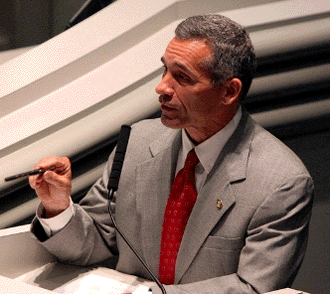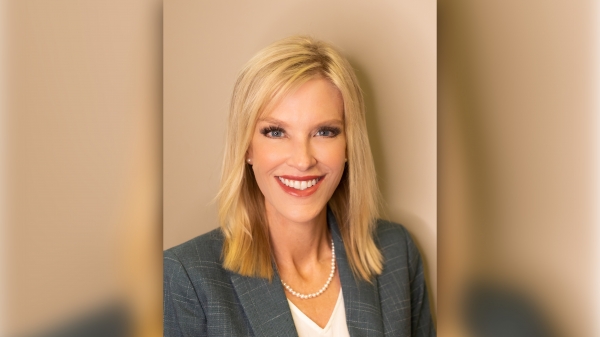by Thomas J. Scovill
When Senator Del Marsh, (R-Anniston), became pro tempore of the Alabama Senate in 2010 following the great Republican sweep, he pushed a series of new ethics laws with great fanfare. This included updates to Alabama’s Fair Campaign Practices Act (FCPA).
Because there is every reason to believe that Senator Marsh is up to speed on the provisions of the FCPA, it is disturbing to find errors in his annual report for 2011, errors that do not complying with the law in several respects. All of this information was send to Senator Marsh last year but he never respond to the letter. After reviewing his annual report for 2012 if was evident that the problems had not been corrected; indeed, they recurred. Additionally there were new problems as well.
Per section 17-5-7 of the FCPA, campaign funds may only be used for the following purposes (complete section included at bottom of this message):
- campaigning
- expenses of the office held
- inaugural or transitional expenses
- contributions to state and local government
- contributions to organizations for which contributions are tax deductible
- political party qualifying fees
- campaign contributions for tickets to party functions and dues ($5,000 per term of office)
Here are the issues (references are included at the bottom of this message).
1. Impermissible use of campaign funds – loan to a not-for-profit corporation. There is nothing in the FCPA which permits a campaign to make loans to individuals, corporations, or other organizations, i.e., loans are not on the Section 17-5-5 list of permitted uses of campaign funds.
In May 2012, Senator Marsh made a $40,000 loan from his campaign to Citizens for Fair Representation, Inc. (http://www.nonprofitfacts.com/AL/Citizens-For-Fair-Representation-Inc.html).
2. Impermissible use of campaign funds – contributions to ineligible organizations. The FCPA states that contributions can only be made to state and local government and to organizations for which contributions are eligible for a federal tax deduction. Contributions to legal defense funds are not eligible for a federal tax deduction. And a legal defense fund is not a charitable cause because it is a private trust intended to benefit only the person in need of funds to pay his legal expenses.
Senator Marsh has made contributions from his campaign to the legal defense funds of Alabama Senator Quentin Ross ($5,000 each in 2011 and 2012, $10,000 total) and Congressman Spencer Bachus ($2,500 in 2012).
3. Impermissible use of campaign funds – contributions to a political party in excess of allowable limit of $5,000 per term of office. These contributions are limited to dues and tickets for political functions.
Senator Marsh has made contributions totaling $7,072 from his campaign to Republican organizations. This is $2,072 in excess of the $5,000 limit.
7-1-11 Coffee County Republican Committee $1,000
9-14-11 Alabama federation of Republican Women $1,000
9-16-11 Calhoun County Republican Party $4,572
7-28-12 Calhoun County Republican Party $ 500
Total $7,072
Amount above $5,000 limit $2,072
Again Senator Marsh was notified about these problem over a year ago and yet the same pattern continues. Perhaps William Shenstone had something like Alabama’s FCPA in mind when he wrote, “Laws are generally found to be nets of such a texture, as the little creep through, the great break through, and the middle-sized alone are entangled in.” It seems Del Marsh is large enough to have no concerns of entanglement.
References for issue 1:
FCPA Section 17-5-7. Use of excess moneys received; solicitation, etc., of contributions.
(a) A candidate, public official, or principal campaign committee as defined in this chapter, may only use campaign contributions, and any proceeds from investing the contributions that are in excess of any amount necessary to defray expenditures of the candidate, public official, or principal campaign committee, for the following purposes:
(1) Necessary and ordinary expenditures of the campaign.
(2) Expenditures that are reasonably related to performing the duties of the office held. For purposes of this section, expenditures that are reasonably related to performing the duties of the office held do not include personal and legislative living expenses, as defined in this chapter.
(3) Donations to the State General Fund, the Education Trust Fund, or equivalent county or municipal funds. Donations to an organization to which a federal income tax deduction is permitted under subparagraph (A) of paragraph (1) of subsection (b) of Section 170 of the Internal Revenue Code of 1986, as amended, or any other charitable, educational, or eleemosynary cause of Section 501 of Title 26 of the U. S. Code.
(4) Inaugural or transitional expenses
References for issue 2:
See FCPA Section 17-5-7.(a)(3) at reference for issue 1.
Ross defense fund: http://www.rossdefensetrust.org/index.php?option=com_content&view=article&id=71&Itemid=74
Extracts from US Code: http://www.law.cornell.edu/uscode/text/26/401
26 USC § 501 – EXEMPTION FROM TAX ON CORPORATIONS, CERTAIN TRUSTS, ETC.
(a) Exemption from taxation
An organization described in subsection (c) or (d) or section 401(a) shall be exempt from taxation under this subtitle unless such exemption is denied under section 502 or 503.
(b) Tax on unrelated business income and certain other activities
An organization exempt from taxation under subsection (a) shall be subject to tax to the extent provided in parts II, III, and VI of this subchapter, but (notwithstanding parts II, III, and VI of this subchapter) shall be considered an organization exempt from income taxes for the purpose of any law which refers to organizations exempt from income taxes.
(c) List of exempt organizations
The following organizations are referred to in subsection (a):
(d) Religious and apostolic organizations
26 USC § 401 – QUALIFIED PENSION, PROFIT-SHARING, AND STOCK BONUS PLANS
References for issue 3:
Section 17-5-7.(d) Notwithstanding any other provision of law, a principal campaign committee, during a term of office commencing on the day after the election for the seat or office the candidate seeks and ending on the day of the next general election for that seat or office, may pay qualifying fees to a political party and may expend up to a cumulative total of five thousand dollars ($5,000) of campaign contributions, and any proceeds from investing the contributions, for the following purposes:
(1) Tickets for political party dinners or functions.
(2) State or local political party dues or similar expenses incurred by independent or write-in candidates.
Complete extract of Section 17-5-7 of the FCPA:
Section 17-5-7. Use of excess moneys received; solicitation, etc., of contributions.
(a) A candidate, public official, or principal campaign committee as defined in this chapter, may only use campaign contributions, and any proceeds from investing the contributions that are in excess of any amount necessary to defray expenditures of the candidate, public official, or principal campaign committee, for the following purposes:
(1) Necessary and ordinary expenditures of the campaign.
(2) Expenditures that are reasonably related to performing the duties of the office held. For purposes of this section, expenditures that are reasonably related to performing the duties of the office held do not include personal and legislative living expenses, as defined in this chapter.
(3) Donations to the State General Fund, the Education Trust Fund, or equivalent county or municipal funds. Donations to an organization to which a federal income tax deduction is permitted under subparagraph (A) of paragraph (1) of subsection (b) of Section 170 of the Internal Revenue Code of 1986, as amended, or any other charitable, educational, or eleemosynary cause of Section 501 of Title 26 of the U. S. Code.
(4) Inaugural or transitional expenses.
(b) Notwithstanding any other provision of law, including, but not limited to, Section 13A-10-61, a candidate, public official, or principal campaign committee may only accept, solicit, or receive contributions:
(1) To influence the outcome of an election.
(2) For a period of 12 months before an election in which the person intends to be a candidate. Provided, however, candidates for state office and their principal campaign committees may not accept, solicit, or receive contributions during the period when the Legislature is convened in session. For purposes of this section, the Legislature is convened in session at any time from the opening day of the special or regular session and continued through the day of adjournment sine die for that session. However, this subdivision shall not apply within 120 days of any primary, runoff, or general election, and shall not apply to the candidates or their principal campaign committees participating in any special election as called by the Governor. This subdivision shall not apply to a loan from a candidate to his or her own principal campaign committee.
(3) For a period of 120 days after the election in which the person was a candidate, but only to the extent of any campaign debt of the candidate or principal campaign committee of the candidate as indicated on the campaign financial disclosure form or to the extent of reaching the threshold that is required for qualification as a candidate for the office which he or she currently holds, or both.
(4) For the purpose of paying all expenses associated with an election challenge including, but not limited to, quo warranto challenges.
(c) Notwithstanding any other provision of law, including, but not limited to, Section 13A-10-61, a candidate, public official, or principal campaign committee shall not accept, solicit, or receive contributions for any of the following reasons:
(1) As a bribe, as defined by Sections 13A-10-60 to 13A-10-63, inclusive.
(2) For the intention of corruptly influencing the official actions of the public official or candidate for public office.
(d) Notwithstanding any other provision of law, a principal campaign committee, during a term of office commencing on the day after the election for the seat or office the candidate seeks and ending on the day of the next general election for that seat or office, may pay qualifying fees to a political party and may expend up to a cumulative total of five thousand dollars ($5,000) of campaign contributions, and any proceeds from investing the contributions, for the following purposes:
(1) Tickets for political party dinners or functions.
(2) State or local political party dues or similar expenses incurred by independent or write-in candidates
Other References
Campaign finance reports search site: http://arc-sos.state.al.us/CGI/ELCNAME.MBR/INPUT
Senator Marsh, extract from annual report for 2011 (page 1)
Senator Marsh, extract from annual report for 2012 (page 1) (page 2)





















































